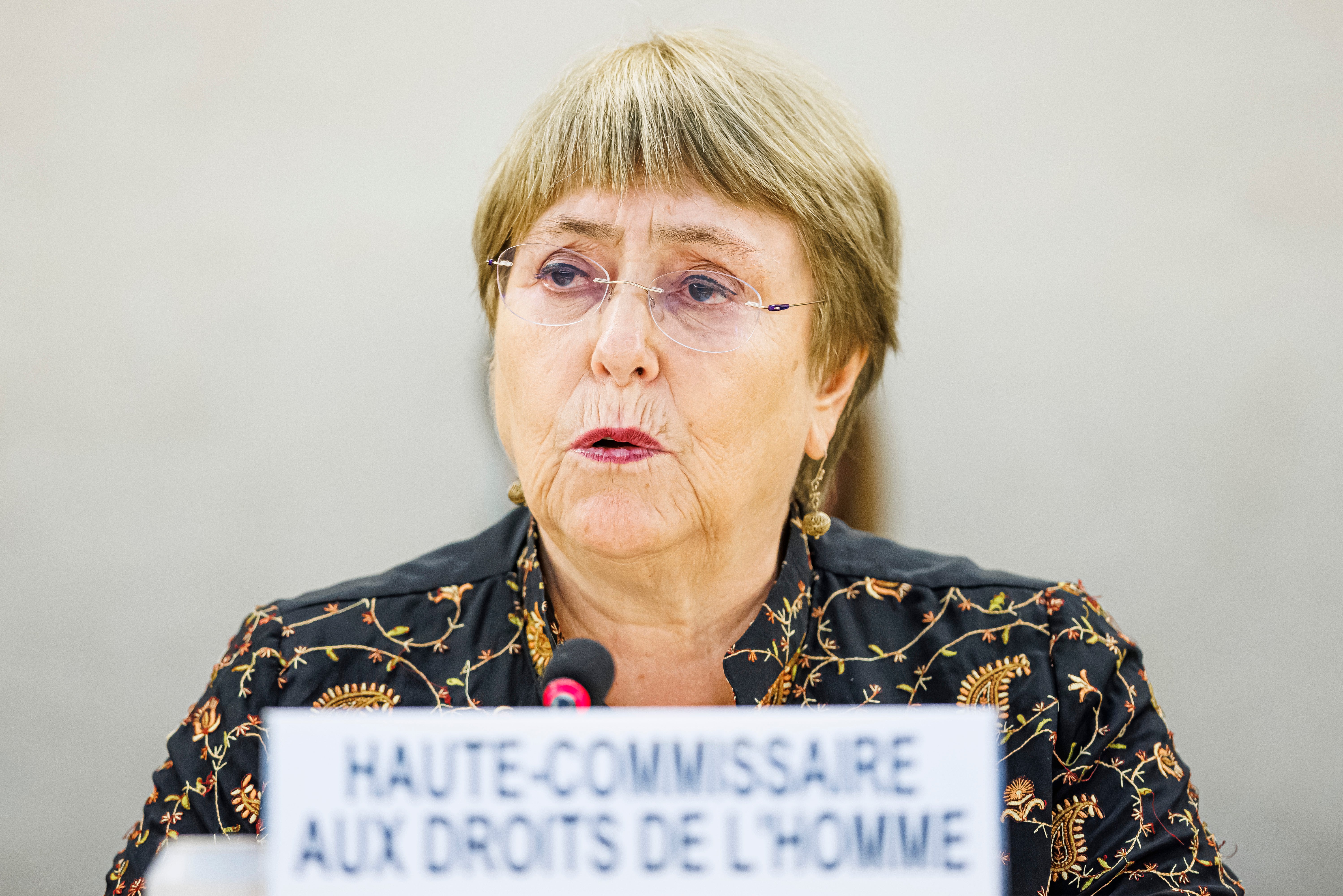UN rights chief hints report on Xinjiang may miss deadline
The outgoing U.N. human rights chief has suggested her office won’t make good on her promise to release its long-awaited report on China’s Xinjiang region by the end of her term next week

Your support helps us to tell the story
From reproductive rights to climate change to Big Tech, The Independent is on the ground when the story is developing. Whether it's investigating the financials of Elon Musk's pro-Trump PAC or producing our latest documentary, 'The A Word', which shines a light on the American women fighting for reproductive rights, we know how important it is to parse out the facts from the messaging.
At such a critical moment in US history, we need reporters on the ground. Your donation allows us to keep sending journalists to speak to both sides of the story.
The Independent is trusted by Americans across the entire political spectrum. And unlike many other quality news outlets, we choose not to lock Americans out of our reporting and analysis with paywalls. We believe quality journalism should be available to everyone, paid for by those who can afford it.
Your support makes all the difference.The outgoing U.N. human rights chief suggested Thursday that her office may not make good on her promise to release its long-awaited report on China’s Xinjiang region by the end of her term next week.
Speaking to reporters, Michelle Bachelet said her office is “trying” to meet the deadline that she herself set in June, shortly after announcing that she would not seek a new four-year term after the current one ends on Aug. 31.
“Try harder!" tweeted John Fisher, the Geneva director for Human Rights Watch, after hearing her news conference. “Anything less would be a disgrace to her office and a betrayal of victims.”
The final months of Bachelet’s term have been overshadowed by extended delays in releasing the report about Xinjiang, which many Geneva diplomats believed to be nearly completed a year ago.
“We are working on the report," she said. "I had fully intended for it to be released before the end of my mandate, and we are trying.”
Bachelet said her office — as is common practice when the U.N. rights office reports on countries — has informed China about its “findings” and officials have come back with a “substantial” number of comments. She said her office was focusing only on possible factual errors now.
Independent human rights groups have denounced what Beijing has called vocational centers for ethnic Uyghurs and other minority groups as detention centers, while some countries including the United States have accused Beijing of committing genocide in Xinjiang.
Bachelet insisted she had raised concerns with Chinese authorities, which included a virtual meeting with President Xi Jinping, about the detention conditions and “ill-treatment” of the people inside, when she visited to China and Xinjiang in May — a visit long in the making.
She said her office had received “huge numbers” of letters, starting more than a year ago, requesting the publication of the report on Xinjiang — and in recent months she received a letter from about 40 countries including China “asking for non-publication” of the report.
“I have been under tremendous pressure to publish, or not to publish, but I will not publish or withhold publication due to any such pressure,” she said.
Bachelet has said she is not seeking a new term for personal reasons and a desire to return home to Chile, where she served two terms as president.
The office of U.N. Secretary-General Antonio Guterres has not indicated who Bachelet’s successor might be. The choice would need to be approved by the U.N. General Assembly in New York.
Often such appointments are done by acclamation at the assembly, which could be a tall order in the current times of growing polarization in the world — notably between China, Russia and their allies on one side, and the U.S. and other Western and allied countries on the other.
Bachelet has often faced criticism for being too cozy with or understanding of governments, particularly that of rising powerhouse China, and many saw her appointment in 2018 as a sign of a new tack by Guterres to work more with, not against, leaders on the issue of human rights.
After her trip to China, Bachelet touted an agreement to foster more communication between her office and Chinese authorities, but it remains unclear how much her office can keep that up after she leaves the job.
Overall, she has garnered plaudits for pressing to get U.N. human rights monitors into Venezuela, which she visited and spoke out strongly about rights violations and abuses under President Nicolas Maduro's government; and voicing strong concerns about racial discrimination and police violence in the wake of the death of George Floyd, a Black man, under the knee of a police officer in the United States in May 2020.
Bachelet lamented that the COVID-19 pandemic had curtailed her ability to travel to meet with governments, victims and advocacy groups around the world. While noting progress on some issues like the death penalty, which a growing number of countries banned during her term, she expressed frustration that governments had not always prioritized human rights as they should.
“Sometimes you feel that the world is not getting any better,” she said.